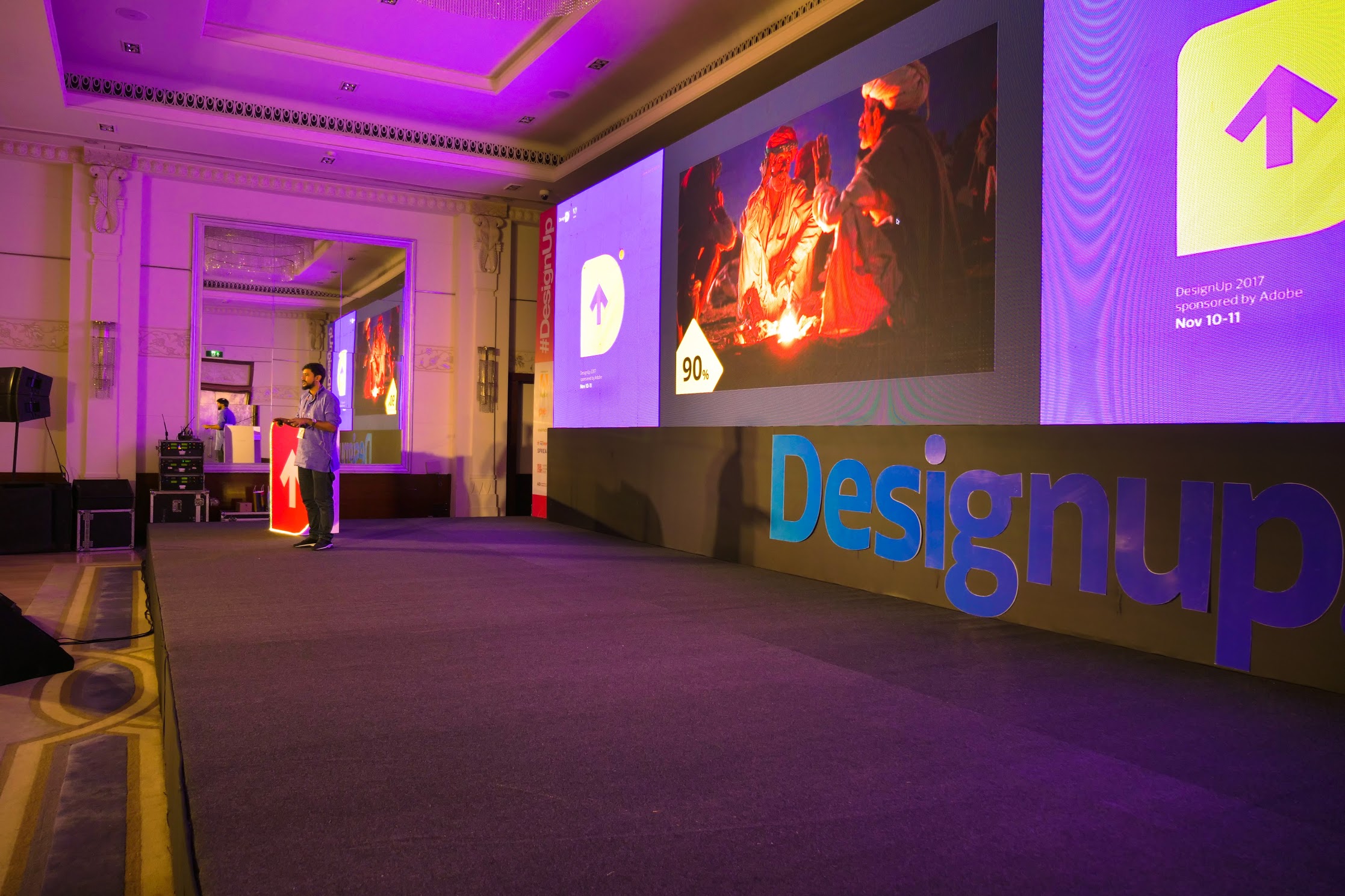DesignUp Conference is back in Bangalore, India, on October 26–27, 2018.
We’re inviting practitioners, researchers and academics to submit their ideas, drafts and proposals for talks and workshops. This post is to help you understand the conference, the audience and the way we select talks—and why you should send in your proposals early. Last date for submissions was 22nd May, Tuesday. But to know about any updates please subscribe to the DesignUp newsletter.
Meanwhile the call for demos is still open: This year we have an added category: demos. If you are an creator/maker who wants to showcase a unique piece of interactive art or installation (involving visual art, motion graphics, food, music, bots, games or more), then we need to talk.
If you want to jump straight in, and get started on your submission — here’s the link to the Google form. However, would advice you to go through the post in detail, before submitting your proposal.
The Conference
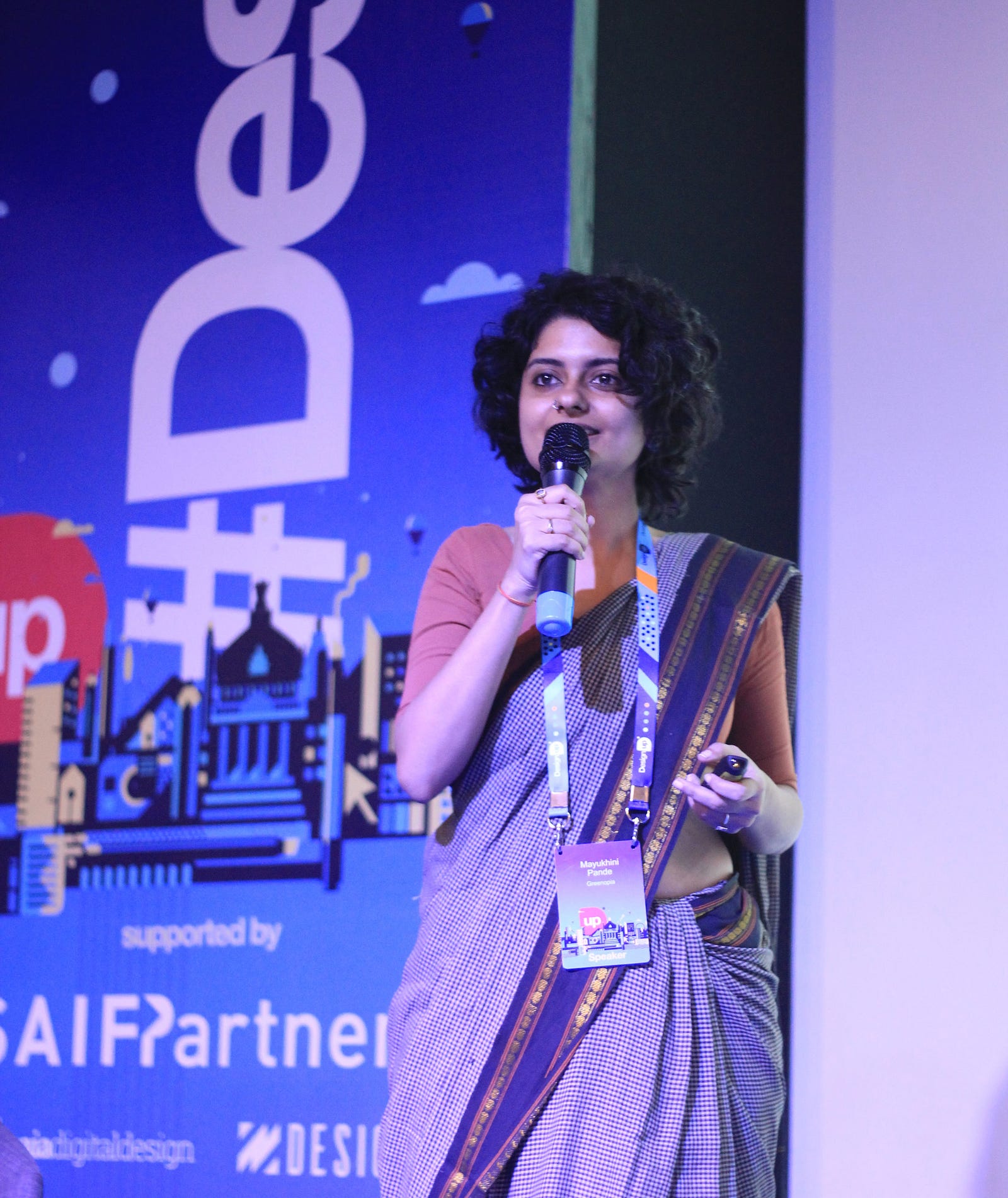
A short backstory: DesignUp started with the idea of raising the design agenda within tech companies and tech-led businesses. DesignUp is volunteer-driven and community led. There are no full time salaried employees—we all have our day jobs. For us, DesignUp is a passion and unifying force. Over 2 editions, we grew DesignUp from 230 attendees to 580 for the main conference. And a combined 800+ attendees across multiple event formats in 2017, making it possibly India’s largest gathering of Designers in technology. But being the biggest is never the aim.
Here’s a short video recap of the 2017 Conference and the ‘10-Things-You-Didn’t-Know’ published by YourStory in 2016. And you can relieve the 2017 Conference in tweets via this LinkedIn article.
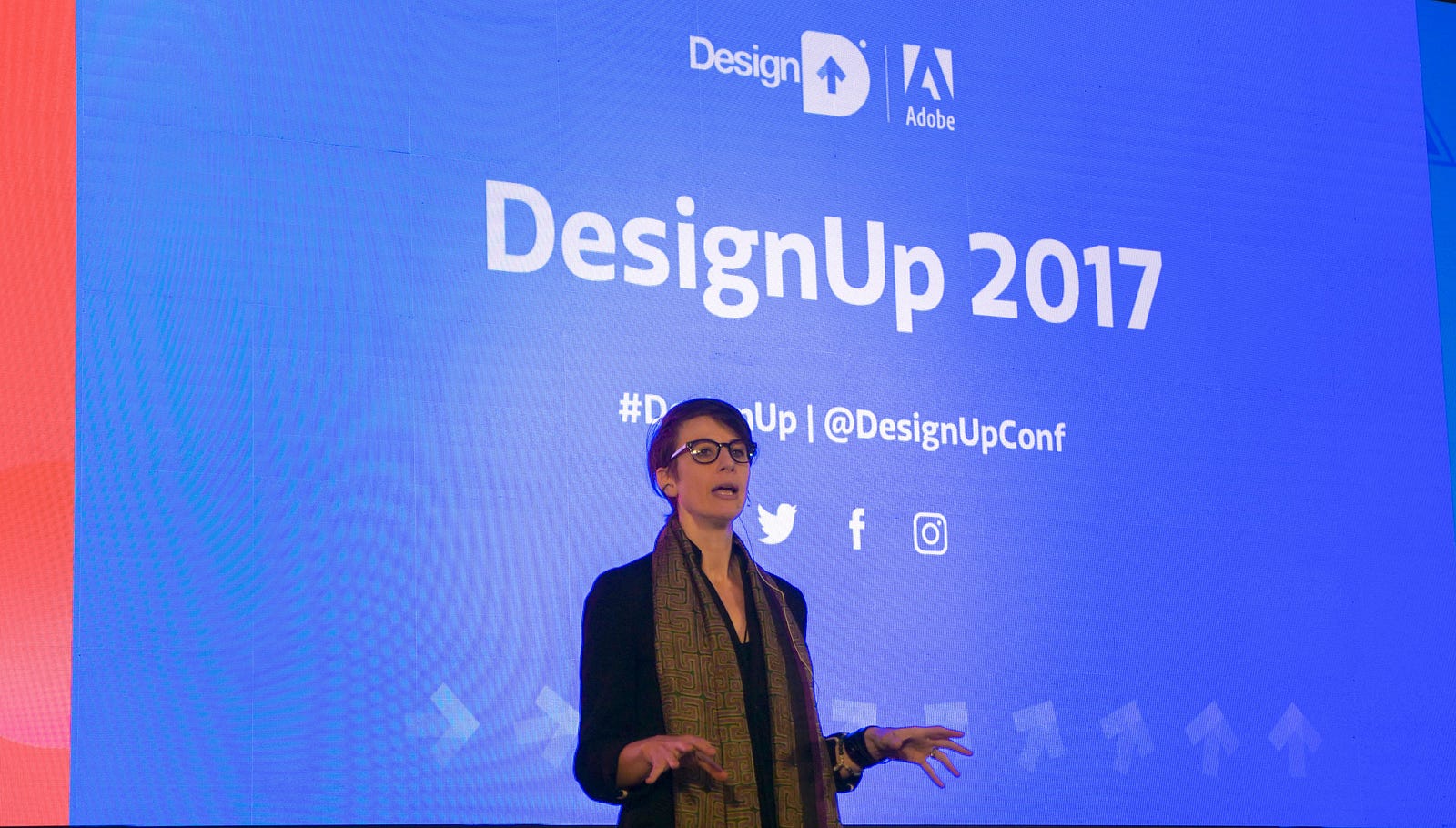
The conference has gone on to be called ‘the definitive Design-in-Tech event’, ‘the Gold Standard of Design Conferences in India’ and listed amongst ‘the most exciting Design events for 2018’ by Quartz. But we have a long way to go — and the only way to continue being a great destination for the growing community is by having the most insightful speakers, diverse voices and inspiring content.That’s where you come in!
Themes & Tracks
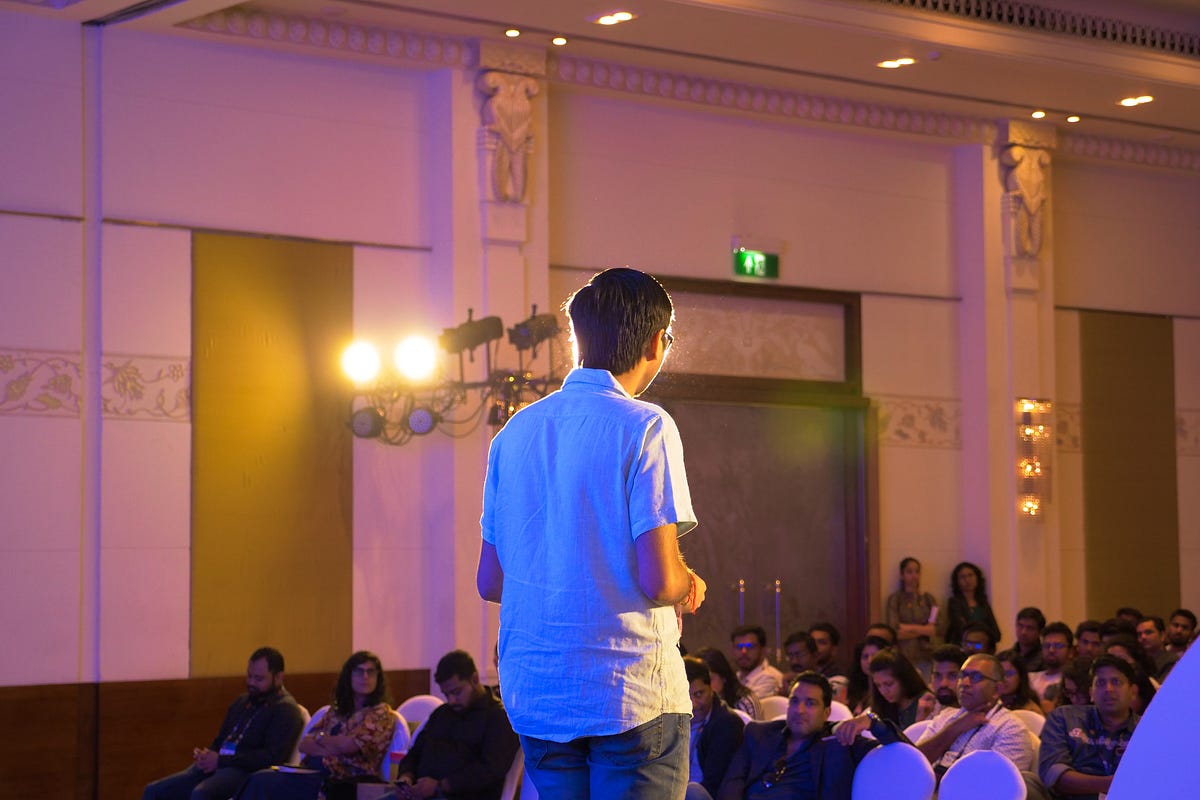
We don’t do an over-arching theme for each edition. Some speakers have to force-justify (and that’s something we don’t want speakers to do) and some stray off it. Some do get it right —but it’s often a hit and miss affair.
Our foundational theme remains the same: Design-in-tech and Design-for-tech — to make Tech and Businesses more human and humane, to impact human lives, and the broader ecosystems, for better. And to contribute to the craft and practice of Design discipline in it’s new, ever-changing but high impact tech arena. Our Keynotes often explore myriad areas within this broad theme.
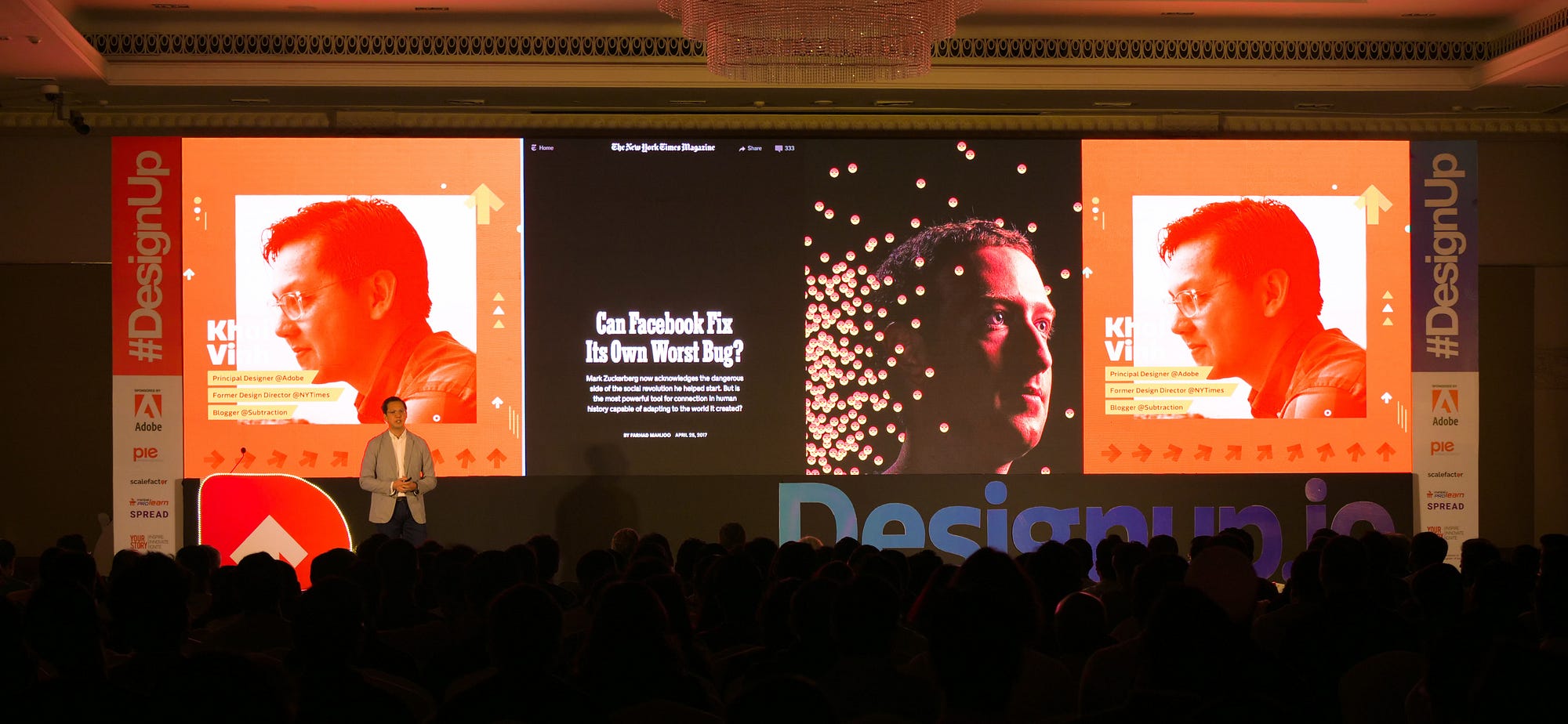
However, each year we focus on specific tracks —2016 was dedicated to Design-in-startups, 2017 was focused AR/VR and emergent tech, Design & Data and Designing for India. This year, we have four new tracks.
Our Four Tracks for 2018
- Design for Participation & Inclusion: increasingly Designers are working with, and in complex systems where multiple systems, platforms and people participate, directly or indirectly. Intentionally, or unintentionally, we affect them, influence them, empower them for greater good or exclude them to make the participatory systems and the collective experiences poorer, biased, unfair or flawed. The examples we are looking for are those that connect, include and help people and systems participate for greater good and for group and individual empowerment. We’re looking for case studies, best practices, insights where the sum of parts adds up to much more than it’s parts.
- Design Systems: How do you create an ecosystem of scaleable parts that adapts and adopts — and moves seamlessly across platforms? We are looking forward to best practices, to seeing demos, understand evolving processes, relive complex constraints and celebrate failures, trials and learnings!
- Front-end Development: Time to revisit grids and guides, adaptive and responsive, performance and pixel-perfection—and to visit what’s new and emergent. From Demos to best practices, from celebrating craftsmanship to future-gazing, this track is for people who love elegant code and hard-working design.
- Rich experiences: how are sound, motion, animation, sensors, IoT, augmented-reality (and more), creating layers of rich interactive patterns: from aiding flows to un-complicating, creating or co-creating art, or crafting culinary experiences, helping in learning or simply entertaining in new unique ways. We would love to see, hear or even experience first hand by providing you spaces to demo at DesignUp.
For workshops, the emphasis is a lot on learning processes, methods and systems as well as tools and techniques—broadly located within the tracks. But we are also a bit more lenient on the workshops going off-track. And we encourage Analog Workshops, focusing on hands-on creation—from Origami to Sketching to Photo-walks.
You can share a project, a processes, hacks, approaches or philosophy, share insights or unique journeys. We encourage you to share failures (it teaches us a lot) but strongly discourage using the platform to market your team, sell your product or organisation.
Formats
Two flavours: Workshops and Talks.
Two Variants: Long and Short. Apart from the new demo spaces that is.
Our long talks are 30–40 mins and the short ones are 15–20 mins. Long workshops are upto 2.5 hours, short ones can be upto 1.5 hours. Keynotes are usually by invite — but if we find a promising proposal, we’ll discuss and convert it to keynote.
We are also inviting ideas for long full day, in-depth workshops. You can use the same form to share your proposals.
Our Attendees
We attract some of the most diverse audiences—by organisation type, gender, location or roles. By Indian standards, DesignUp is on the tad expensive side ($150–$250+ per ticket) but that hasn’t deterred attendees, if anything — it has only attracted those most committed to learning and sharing.
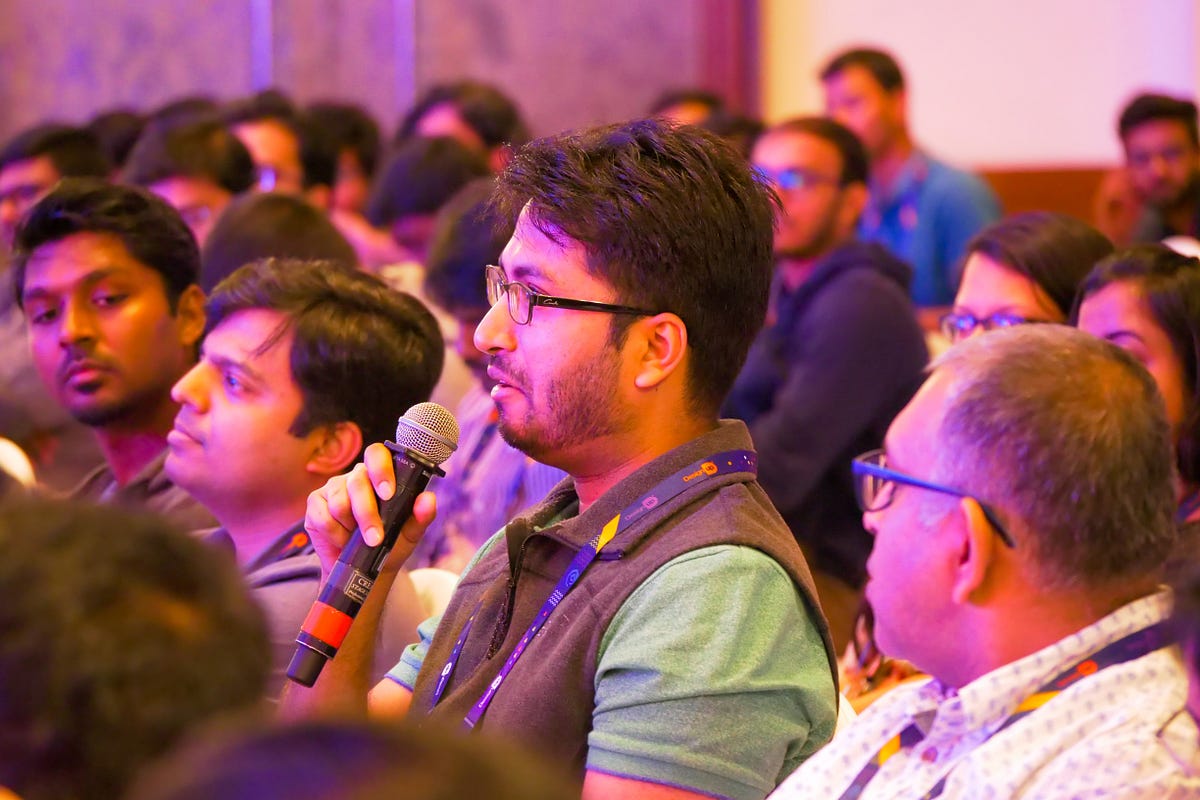
In 2017 we had people coming from over 90 organisations—from Adobe and Amazon to home-grown Indian startups like Zeta and Zomato. Young product companies, VCs and well-funded startups like Flipkart and ClearTax were all represented. Listed companies like Microsoft, MakeMyTrip and Google, to established consulting orgs like Accenture, EY, TCS, BCG as well as boutique studios and freelancers participated. Competitors and disruptors, funders and funded—all became part of the community for the 2 days.
Author

Jay, abbreviated to JD, is a Design thinker, doer, evangelist and speaker. Formerly Head of Design for Adobe India and Flipkart, he is currently the SVP of Ux for the GoMMT Group and is the Founder/Curator of DesignUp


